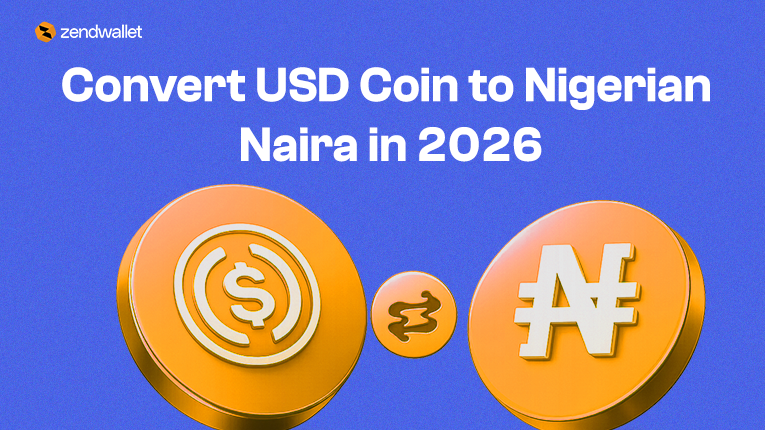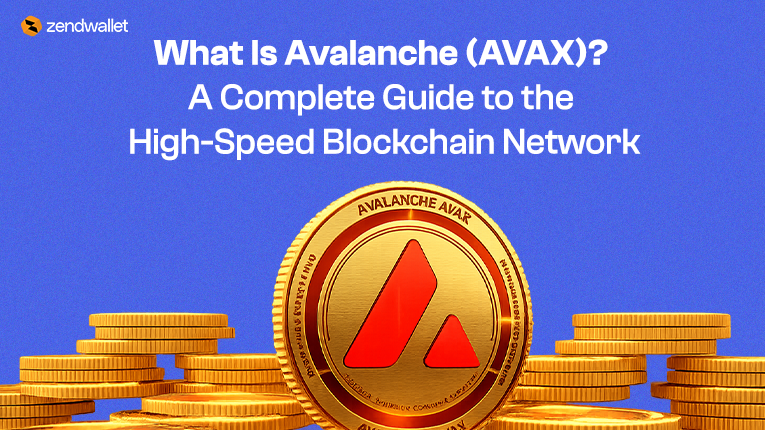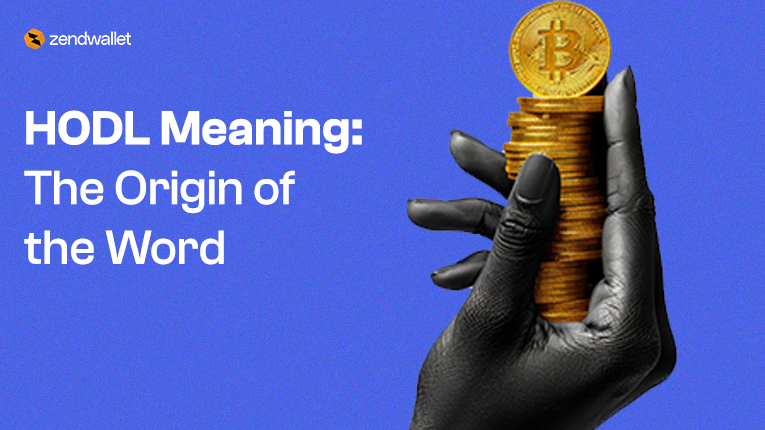Cryptocurrency is no longer an experiment. It is changing the way people save, invest, and move money across the world.
Bitcoin has crossed the $100,000 mark. Ethereum ETFs are gaining approval. Global financial institutions are adapting, and countries like Nigeria are introducing digital asset policies to guide adoption and protect users.
Despite this growing interest, millions of people are entering the world of crypto.
From protecting savings against inflation to gaining more financial freedom, digital assets are becoming a serious option for everyday people across Africa and beyond.
But one of the first and most important things new users need to understand is how a cryptocurrency exchange differs from a cryptocurrency wallet.
Many confuse the two, thinking they serve the same purpose. But the difference is not just technical.
Confusing a wallet with an exchange can lead to costly mistakes, such as losing access to your assets, falling for scams, or storing your crypto in risky places.
This guide explains in clear terms how a cryptocurrency exchange is different from a cryptocurrency wallet.
It breaks down how each one works, their roles in the crypto journey, and the risks of using one when you need the other.
You will also see why using a trusted wallet like ZendWallet is a smarter and more secure way to store, send, and manage your digital assets.
In a space where control and security are everything, the right wallet can make all the difference.
What is a Cryptocurrency Exchange?

A cryptocurrency exchange is an online platform where individuals buy, sell, and trade cryptocurrencies such as Bitcoin, Ethereum, USDT, and many others.
It functions like a digital marketplace that operates around the clock, allowing users to access and participate in the crypto economy from anywhere in the world.
To put it simply, imagine a currency exchange booth at an airport, but much more advanced, open all day and night, and accessible through your computer or smartphone.
These platforms connect buyers and sellers, offering prices that change constantly based on how many people want to buy or sell a particular cryptocurrency.
Users can fund their accounts with traditional money, such as US dollars or Nigerian Naira, and then purchase cryptocurrencies.
They can also trade one cryptocurrency for another, for example, exchanging Bitcoin for Ethereum, all within the platform.
An important aspect to understand is that most cryptocurrency exchanges provide digital wallets where your crypto is stored while on the platform.
This, however, does not mean you have full control over your assets.
When you keep your crypto on an exchange, you do not own the private keys that secure your wallet.
Instead, the exchange holds those keys on your behalf.
This means you must trust the exchange to keep your funds safe and allow you access whenever you want to use or withdraw your crypto.
Types of Cryptocurrency Exchanges
Cryptocurrency exchanges fall into two main categories: centralized exchanges and decentralized exchanges.
Each has a distinct way of operating, advantages, and risks.
Centralized Exchanges (CEX)
Centralized exchanges are run by companies that control the entire platform and manage all trading activities.
When you sign up on a centralized exchange, you create an account with the company behind the platform.
This process is similar to opening a bank account or registering with an online payment service.
Examples of well-known centralized exchanges include, and importantly for Africa, ZendWallet.
ZendWallet is one of the leading centralized cryptocurrency exchanges designed to serve African users. It offers a secure, easy-to-use platform where users can trade cryptocurrencies like Bitcoin, Ethereum, etc.
ZendWallet provides a comprehensive experience by combining crypto trading and wallet storage in one app, allowing users to buy, sell, swap, and securely store digital assets.
On ZendWallet and other centralized exchanges, the platform holds custody of your crypto assets and private keys.
You will be required to complete identification verification steps, known as Know Your Customer procedures.
This often involves submitting identity documents and linking a bank account for smooth deposits and withdrawals.
Centralized exchanges like ZendWallet make managing your crypto clear and convenient.
With ZendWallet, you can deposit your digital assets, swap between different cryptocurrencies, and convert your holdings all within one secure platform.
We focus on providing you with easy and reliable access to your crypto transactions.
Our platform uses strong security measures and industry-leading standards to protect your assets, allowing you to trade and manage your crypto safely and with assurance.
Decentralized Exchanges (DEX)
Decentralized exchanges operate without a central authority or company controlling the platform.
Instead, they use blockchain protocols and smart contracts to enable users to trade cryptocurrencies directly with one another.
Popular decentralized exchanges include Uniswap, 1INCH, HyperLiquid, and SushiSwap.
Unlike centralized exchanges, decentralized exchanges do not require users to create accounts or submit personal information.
Instead, users connect their cryptocurrency wallets, such as MetaMask or other compatible wallets, directly to the exchange interface. This connection is typically made via browser extensions or QR codes.
On a decentralized exchange, users retain complete control over their private keys and funds.
They initiate and authorize every transaction themselves.
This model maximizes privacy and self-custody, but also means users must manage their security carefully and pay network fees for transactions.
Decentralized exchanges allow users to:
Connect their wallets without registration or identity checks
Trade cryptocurrencies directly with other users through smart contracts
Maintain full ownership and control of their digital assets at all times
However, decentralized exchanges require more technical knowledge and responsibility.
Users must understand how to manage their wallets, recognize genuine tokens, and handle transaction fees correctly.
There is no customer service to reverse mistakes or help recover lost funds.
What is a Cryptocurrency Wallet?

A cryptocurrency wallet is a digital or physical application that allows you to access, manage, and use your cryptocurrency.
Although the word “wallet” might make you think it stores your crypto, that is not exactly how it works.
The wallet does not hold your coins. Instead, it holds something even more essential: your private keys.
Private keys are cryptographic codes that prove you are the legitimate owner of a specific amount of cryptocurrency recorded on the blockchain.
Without these keys, you cannot view, send, or receive your crypto. Even if the assets are linked to your blockchain address, they remain inaccessible without the private keys.
Your cryptocurrency exists on the blockchain, which is a decentralized digital record that tracks all transactions.
The wallet serves as your access point to this system. It helps you check your balance, send and receive crypto, and authorize transactions.
You can think of your wallet as a personal connection that links you to your assets on the blockchain. It represents both your identity and your right to access what you own.
Types of Cryptocurrency Wallets
Cryptocurrency wallets come in different forms, each designed to store and manage your digital assets in unique ways.
Understanding these types helps you make informed decisions about how to secure and access your cryptocurrencies.
Broadly, wallets are categorized into custodial wallets and non-custodial wallets.
1. Custodial Wallets
Custodial wallets are managed by a third-party service provider, such as a cryptocurrency exchange or a wallet company.
In this setup, the provider holds and safeguards your private keys on your behalf, meaning they are responsible for the security and management of your assets.
Key Characteristics:
Ease of Use: Since the wallet provider handles the complex security details, custodial wallets are user-friendly and ideal for beginners or those who prefer a hands-off approach.
Access and Recovery: If you forget your login details or lose access to your account, custodial services often have customer support and recovery options to help you regain access.
Security Measures: Reputable custodial wallets invest heavily in security infrastructure, including encryption, multi-factor authentication, and insurance against certain types of loss.
Examples: ZendWallet is a prime example of a custodial wallet. It allows users to deposit, swap, and convert cryptocurrencies easily while managing the private keys securely behind the scenes.
Considerations: When using a custodial wallet, you place trust in the provider’s security protocols and policies.
While this brings convenience, it means the provider has ultimate control over the assets. It is crucial to use services with strong reputations and robust security.
2. Non-Custodial Wallets
Non-custodial wallets give you full ownership and responsibility for your private keys. This means only you have access to your crypto assets, and no third party can intervene or restrict access.
Key Characteristics:
- Full Ownership: You are the sole guardian of your private keys, which means you have complete autonomy over your cryptocurrency.
- Enhanced Privacy: Non-custodial wallets do not require personal information or KYC procedures, offering greater privacy.
- Security Responsibility: While these wallets provide stronger protection against external breaches, they also require you to take full responsibility for securing your keys and recovery phrases. Losing this information means permanent loss of access to your assets.
- Examples: Popular non-custodial wallets include MetaMask, Trust Wallet, and hardware wallets like Ledger and Trezor.
Considerations: Non-custodial wallets are preferred by users who prioritize security and ownership over convenience.
However, they demand a higher level of technical understanding and careful management of private keys.
Choosing the Right Wallet
The choice between custodial and non-custodial wallets depends on your priorities:
If you prefer full control, privacy, and direct ownership, a non-custodial wallet will suit your needs, provided you are prepared to manage your security independently.
If you value convenience, user-friendly interfaces, and customer support, a custodial wallet like ZendWallet offers a balanced, secure environment for managing your cryptocurrencies with ease.
What is the key difference between a crypto wallet and a crypto exchange/ How is a Cryptocurrency Exchange Different from a Cryptocurrency Wallet

The fundamental difference between a cryptocurrency wallet and a cryptocurrency exchange lies in their main purposes and how much control you have over your digital assets.
A cryptocurrency exchange is an online platform designed to help users buy, sell, and convert different cryptocurrencies.
This platform functions as a marketplace, facilitating swift and easy trading of digital currencies between users.
When using a centralized exchange like ZendWallet, the platform holds your digital assets securely on your behalf and takes care of the technical and security measures needed to keep your holdings safe.
This setup allows you to focus on trading and converting cryptocurrencies without worrying about managing the technical side of security.
In this way, ZendWallet provides a dependable environment where you can deposit your crypto, swap between different coins, and convert assets smoothly, all while the platform manages the safekeeping of your cryptocurrencies.
On the other hand, a cryptocurrency wallet is a service or application that stores your private keys, the unique codes that prove you own your cryptocurrencies on the blockchain.
Unlike exchanges, wallets do not hold your digital coins but give you full control over the access keys that allow you to send, receive, and store your crypto securely.
Holding the keys within the wallet grants you direct ownership and control over your assets, making you fully responsible for them.
Managing your private keys safely is essential, as losing them means losing access to your cryptocurrencies permanently.
In short, exchanges like our platform, ZendWallet are built to help you trade and convert cryptocurrencies securely and conveniently, acting as a reliable partner in your transactions.
Wallets, meanwhile, serve as your safe, giving you complete control over your digital assets by holding the keys to access them.
Combining the use of a centralized exchange for trading and a wallet for storing your long-term holdings can offer a comprehensive and assured approach to managing your cryptocurrency portfolio.
Understanding the Core Differences Between a Crypto Wallet and a Crypto Exchange
Now that you’re familiar with both platforms, let’s break down the key differences between a cryptocurrency wallet and a cryptocurrency exchange, and why understanding both is essential for anyone navigating the digital asset space.
1. Purpose and Functionality
A cryptocurrency exchange operates as a digital marketplace. It’s where you go to buy, sell, swap, or convert cryptocurrencies.
Exchanges simplify the process of entering the crypto world, letting you exchange one digital currency for another or, in some cases, convert crypto to fiat.
A cryptocurrency wallet, on the other hand, is built for storage, sending, and receiving. Think of it as your crypto vault designed to help you keep your assets safe and accessible only to you.
A wallet doesn’t just hold your assets; it gives you exclusive access through your private keys.
When you leave your crypto on an exchange, the assets are held in the platform’s custody. That means you rely on the platform for access. When you use a wallet, especially a noncustodial one like ZendWallet, you’re the only one with access to your crypto.
2. Ownership and Access
On a centralized exchange, the platform manages access to your digital assets. Your private keys, the cryptographic codes that grant access to your crypto, are stored by the exchange, not by you.
While convenient, this means your access can be affected by technical downtime, account restrictions, or external events.
With a noncustodial wallet like ZendWallet, you hold the private keys yourself. This means no external party can freeze or move your crypto. Your access is entirely yours, uninterrupted, independent, and not reliant on any third party decisions or events.
In crypto, there’s a phrase we live by:
“Not your keys, not your coins.”
This means the person who holds the private keys is the one who truly has access to the crypto. At ZendWallet, we believe your crypto should always be yours alone.
3. Security and Risk
Exchanges are often the primary targets for cyberattacks. History has shown us that even some of the biggest platforms like Mt. Gox or FTX have been compromised, resulting in significant losses.
Even with improved security measures, centralized systems always carry some risk simply because of the large volume of assets held in a single place.
Wallets, especially hardware wallets and noncustodial software wallets, are generally considered more secure. Your private keys are either stored offline in hardware wallets or securely encrypted on your device as with ZendWallet.
Because your access credentials aren’t stored on a central server, hackers can’t simply breach a system and reach your crypto.
However, you must be cautious. If you lose your recovery phrase or fall victim to phishing, there’s no third-party support to restore access.
4. Ease of Use and Flexibility
Exchanges are ideal for quick transactions. Whether you’re buying your first crypto or converting one coin to another, centralized platforms make the process simple, especially for beginners.
Wallets, while slightly more technical, offer a higher level of independence. You can send and receive crypto without delays or approvals.
There’s no dependency on external infrastructure to move your assets. If the exchange goes down, your wallet still works. You can transact anytime, anywhere, on your terms.
A smart crypto journey includes both. Use exchanges for active trading and wallets for secure access.
Frequently Asked Questions
Should I store my crypto in a wallet or leave it on an exchange?
It depends on how you use your crypto. If you need quick access for trading, leaving a portion on an exchange is fine.
But for long term storage, a wallet is a safer choice. It reduces your exposure to exchange related risks and ensures you always have access to your crypto.
How do I move crypto from an exchange to a wallet?
It’s simple:
- Open your ZendWallet app
- Tap to copy your public wallet address
- Go to your exchange and click “Withdraw” or “Send”
- Paste your wallet address
- Choose the amount and confirm
Always double check the address. Transactions on the blockchain can’t be reversed.
What’s the best crypto wallet for me?
That depends on your goals:
- For maximum long-term security, consider hardware wallets like Tangem or Ledger
- For daily usage, storage, and swaps, ZendWallet gives you everything you need in one secure, easy-to-use app available anytime on your mobile device
Conclusion
As cryptocurrency adoption grows, understanding where and how to manage your assets becomes increasingly important.
A crypto exchange is your launchpad. It’s where you trade, convert, and get started with crypto. It’s fast, convenient, and accessible, but your crypto is managed by the platform.
A crypto wallet is your private access point. It keeps your assets available to you anytime without relying on anyone else. Your keys stay with you, and so does your access.
With ZendWallet, you don’t have to choose between safety and simplicity. Our noncustodial wallet is built to make your crypto experience intuitive and reliable.
Send, receive, and swap your assets while always having exclusive access to them, right from your phone.
Your crypto. Your access. Start your journey with ZendWallet today.
Also Read: Hot Wallet vs. Cold Wallet – The Key Difference Explained in 2025



